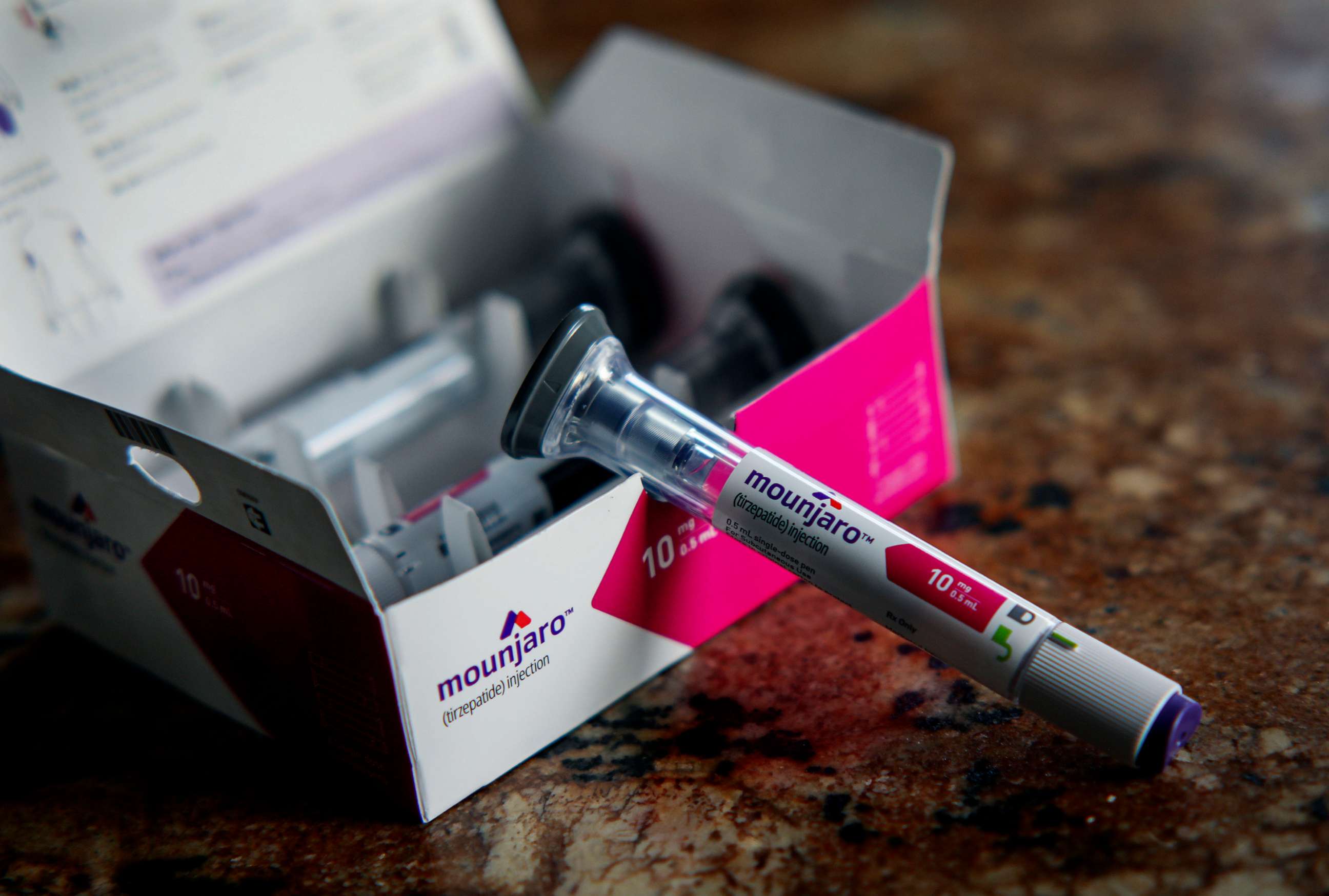What to know about UK warning on weight loss drugs' effect on birth control
Regulators in the United Kingdom issued guidance on Thursday, warning that weight loss and diabetes medications may weaken the effectiveness of birth control and may be harmful for pregnant women.
The Medicines and Healthcare products Regulatory Agency (MHRA) said women taking tirzepatide, sold under the brand name Mounjaro, may need to use another form of contraception.
This is because Mounjaro, a medication licensed to treat diabetes and for weight loss management in the U.K. in conjunction with diet and exercise, may reduce the effectiveness of oral contraceptives in those who are overweight.
The MHRA advised women taking Mounjaro who are overweight and are using an oral form of contraception to also use a non-oral form of contraception, such as a birth control implant, an intrauterine device or condoms.
The agency said using a backup form of birth control is especially important for the four weeks after starting Mounjaro and after any increase in dosage. It also advised taking a second form of birth control for up to two months after taking this class of medications before trying to become pregnant, and recommended against use while pregnant, breastfeeding or trying to become pregnant.

Similarly, the U.S. Food and Drug Administration recommended women on Mounjaro and using oral contraceptives switch to a non-oral form of birth control and use "a barrier method" four weeks after starting use or after a dose increase.
Obstetrics experts told ABC News there have been anecdotal reports of women becoming pregnant while taking tirzepatide -- which falls under a class of medications known as glucagon-like peptide-1 receptor agonists, or GLP-1s -- even though they were on a birth control pill. There are two reasons this may be happening, experts said.
Dr. Elizabeth Langen, an associate professor and maternal-fetal medicine specialist at University of Michigan Health, told ABC News that pregnancy may become more likely in some women after they lose weight.
Additionally, GLP-1s may affect digestion and an oral form of contraception may not be absorbed as effectively, she said.
"Some of these medications change how we digest food and/or medications," Langen said. "It slows that process down, and so we might not have the same blood levels of the hormones that we're expecting to if we're taking an old contraceptive drug, because the weight loss or diabetes medication is impacting our digestion."
Dr. Christina Boots, a reproductive endocrinology and infertility specialist at Northwestern Medicine in Chicago, said she's not sure if the recommendation for a backup form of contraception came from data seen during phase I or phase II clinical trials or if researchers saw more incidental pregnancies in those early studies.
She said sexually active patients who are on weight loss medications should speak to their doctor if they're concerned about getting pregnant.
The MHRA also warned that medicines like Mounjaro included Ozempic, Wegovy, Saxenda and Victoza should not be taken during pregnancy, while trying to get pregnant or during breastfeeding.

The agency said this is because there is a lack of safety data on whether taking the medicine could cause harm to a fetus.
Boots said there are no formal guidelines on the use of GLP-1s in pregnancy. Studies done on rodents suggest there could be birth defects and problems with metabolic function, but no large studies have been conducted on humans.
"With these newer weight loss medications, the challenge is basically that we, unfortunately, don't have a lot of data on how they're going to impact fetal development and how they might impact a mom's health during her pregnancy," Langen said
She went on, "There are other means of controlling diabetes [and] weight loss. We tend to favor those because we know that they're safe for both the mom and the fetus during a pregnancy."




